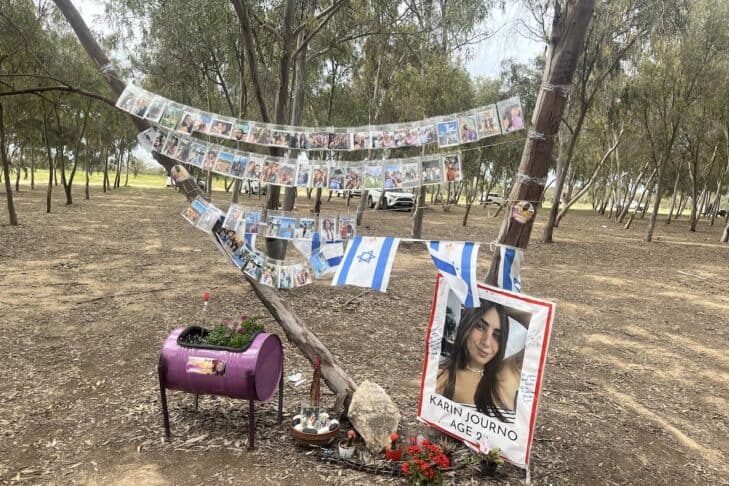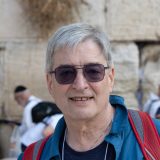While I’ve had the good fortune to visit Israel many times, CJP’s solidarity mission was my first trip to Israel since the Hamas terrorist attacks on Oct. 7. It was an opportunity to learn, see, and meet some of the people who were there on Oct. 7 and get insights into the current situation. After months of going through each day feeling like I was in the wrong place, this mission was an opportunity to be in the right place, to bear witness, and to stand with the people of Israel.
We visited some of the places most directly impacted by the attacks. Each place is part of the story of Oct. 7 and its aftermath.
These included:
- Hostage Square in Tel Aviv and the headquarters of the Hostage and Missing Families Forum, created on Oct. 8, 2023
- K’far Aza, near the northern edge of Israel’s border with Gaza
- Kibbutz Beeri, the site of the Nova music festival
- Erez Crossing, formerly one of the entry points for residents of Gaza to come to Israel to work; now it’s an active base for soldiers entering and leaving Gaza
- Ofakim, about a half hour inland from the border and the eastern-most point of the Hamas invasion
- The “vertical kibbutz” in Tel Aviv, a new apartment block that CJP helped retain as a temporary home for the residents of Kibbutz Reim, located on the Gaza border
- Sheba Medical Center, including the top rehabilitation facility in Israel
We met with survivors, the mother of a hostage, first responders, reservists and active-duty soldiers, soldiers recovering from their injuries, and other Israelis. We heard their stories. It was hard. Their stories could be our stories, and their children and loved ones could be ours. Words can’t do the experience justice, but I have a few observations to share.
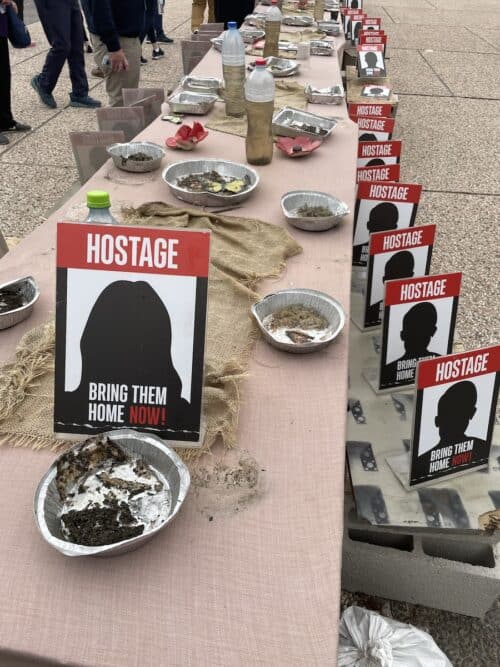
Whatever you think you know about Oct. 7, it was worse.
You’ve likely heard that it was the worst attack against the Jewish people since the Holocaust. By a factor of almost three, on a per capita basis, it was the worst terrorist attack ANYWHERE in at least 50 years. It is an understatement to say that the attack, and all the events that followed, have left Israel traumatized—you can feel it in any conversation with any Israeli. The trauma is ongoing. Virtually everyone knows someone who is currently on active duty in the Israel Defense Forces (IDF), defending Israel. In residential areas, it is not uncommon to see a sign on the front door of a house reading “DO NOT KNOCK.” Why? Because when the IDF comes to share bad news about a loved one, they don’t call in advance, they knock. These are very trying times.
On Oct. 7, the people of Israel were unequivocally a nation of first responders.
From wherever they were, whatever their political beliefs or religious practices, tens of thousands of people dropped what they were doing, and they took action to help.
For example, over a thousand United Hatzalah volunteers converged on the Gaza communities. These are people who normally provide temporary emergency services within minutes of their home until an ambulance arrives. On Oct. 7, the response included Orthodox volunteers who heard whispers of the attacks at Shabbat morning services—they left, broke Shabbat, and rushed to help. They came under Hamas fire, including traps designed to draw them into deadly situations. They saved lives—in two days they went through a year’s worth of medical supplies.
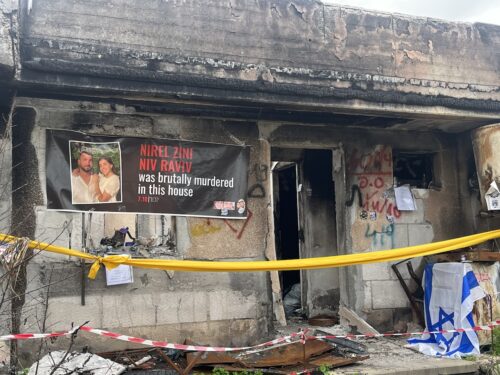
Two of the organizations that have been most important to Israel’s civilian response to the attacks, the Israel Business Alliance and the Hostage and Missing Families Forum, didn’t exist the evening of Oct. 6, the start of Shabbat. By Sunday evening, the end of Simchat Torah, they existed and were organizing and providing vital services across the country.
At Kibbutz Reim, the initial story I heard was that six people were killed on the kibbutz fighting off about 80 Hamas terrorists. Sadly, that doesn’t tell the full story—over 20 people died outside of the kibbutz. These were volunteers who came to try to help fight off the terrorists in any way they could. They gave their lives trying to save other Israelis.
Even before being called up, IDF reservists were reporting for duty. Forty percent more reported than were actually called up. They were not anxious for “revenge”; they were anxious to defend Israel and prevent future Hamas attacks.
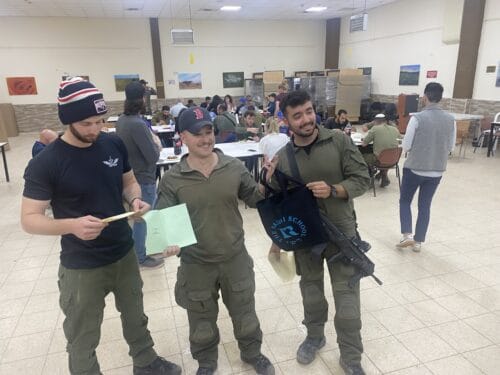
The people you meet on the street in Israel are Clark Kent doing whatever they do by day and becoming Superman (and Superwoman) to help in whatever way they can in the rest of their time. As is always the case with organized tour groups in Israel, our group had a security person who traveled with us. He was as quiet, attentive, and mild-mannered as you could imagine. Before he was with us, and going back the week after our tour, he was serving in Gaza in unit 669, the unit that goes into intense battles to rescue wounded or fallen IDF soldiers. He was a hero, risking his life to save others.
All of Israel stood together.
The week before I left for Israel, from the bimah at Temple Aliyah, Rabbi Leslie Gordon reminded us that we all stood together at Sinai. Many things went wrong in Israel on Oct. 7. It was horrific. And, like we did at Sinai, all of Israel stood together.
The attacks against Israel, and the surging antisemitism in the rest of the world, are the most significant threat to the Jewish people in our lifetimes. The threat is very real. Just like the stories we all read about how the Jewish people confronted past threats and survived, history, along with our children and grandchildren, will ask how we responded. We each need to ask ourselves, how am I responding? What will I say?
For me, visiting Israel was an important first step. I ask that you do something; whatever speaks to you, but please don’t be silent.
After this visit to Israel, I’ve never been prouder or felt more strongly about my Judaism or my Zionism. I look forward to going back.


